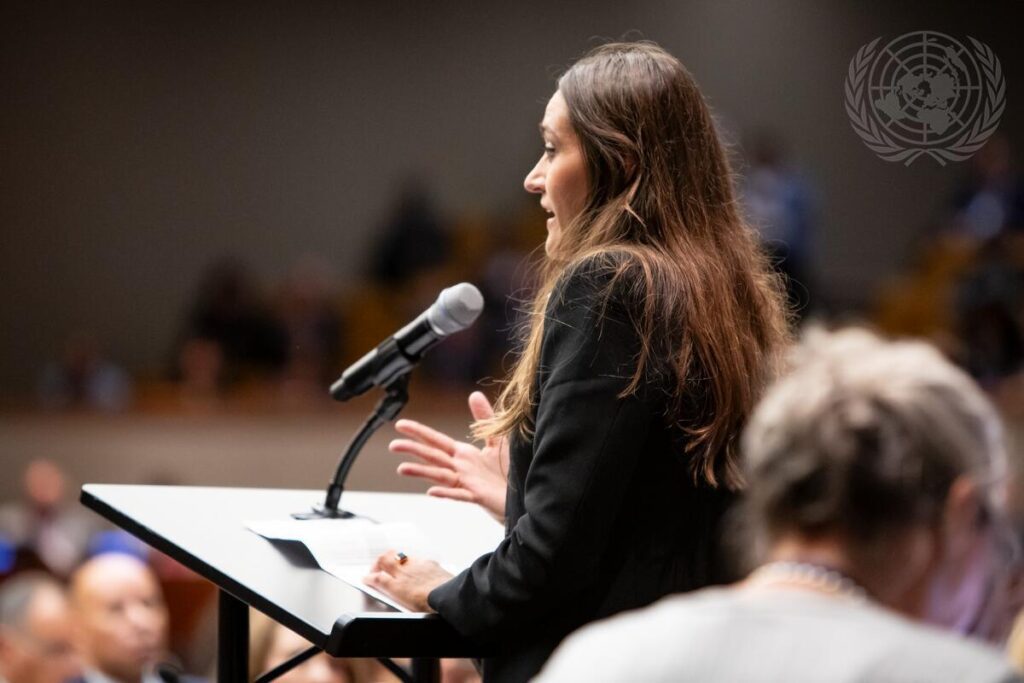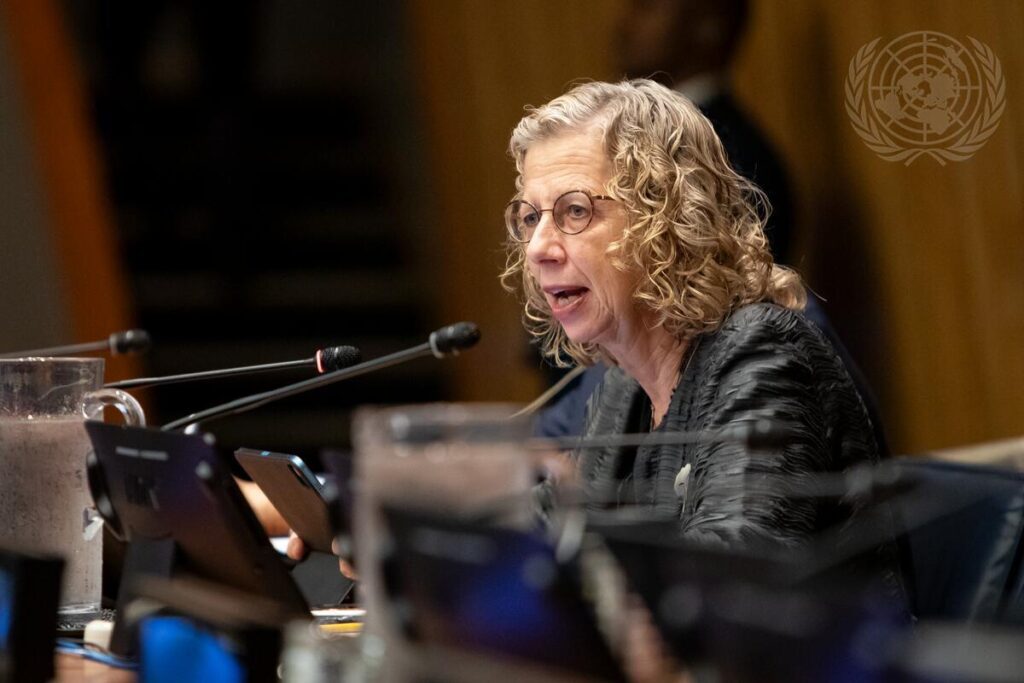September was a big month for those following antimicrobial resistance (AMR).
A new study highlighted the growing public health burden of AMR, and the United Nations General Assembly (UNGA) met on Sept. 26 to discuss and approve a global political declaration to take on the issue. Meanwhile, the much-needed bipartisan PASTEUR Act still awaits passage in the U.S.
Here’s what happened and where we go next.
The Lancet: 39M could die from AMR by 2050
According to a Sept. 16 Lancet study, “Global burden of bacterial antimicrobial resistance 1990–2021: a systematic analysis with forecasts to 2050,” in the next quarter century researchers project 169 million deaths associated with AMR, and more than 39 million deaths directly from AMR infections.
This puts the public health burden of AMR higher than many global epidemic-level diseases like HIV/AIDS, pointed out Axios.
To determine their findings, the study looked at “22 pathogens, 84 pathogen–drug combinations, and 11 infectious syndromes in 204 countries and territories from 1990 to 2021,” making it the “first comprehensive assessment of the global burden of AMR from 1990 to 2021, with results forecasted until 2050.”
According to the study, in 2021, “4.71 million deaths were associated with bacterial AMR, including 1.14 million deaths attributable to bacterial AMR.” These numbers are poised to increase as AMR infections become more virulent and new antimicrobial medicines continue to lag in their development and manufacture.
“The market for new antimicrobials is fundamentally broken,” Emily Wheeler, Biotechnology Innovation Organization’s (BIO) Vice President of Infectious Disease Policy, explained during her recent keynote at the 2024 World AMR Congress. “Nine antibiotics from small companies have received FDA approval since 2013. Every company behind those antibiotics—with the exception of one—has gone bankrupt, been sold for a fraction of its worth, or is underwater and on a concerning trajectory.”
Compared to 2021 rates, “an estimated 1.91 million deaths attributable to AMR and 8.22 million deaths associated with AMR could occur globally in 2050.” That is a considerably marked increase in mortality, with the largest burden “forecasted to be south Asia and Latin America and the Caribbean,” as well as in elderly populations, according to the study.
UNGA holds high-level meeting on AMR
The Lancet study loomed large over the UNGA’s September 26 High-Level Meeting on antimicrobial resistance, with many noting that the study’s findings were “much more horrific than we might have thought,” as expressed by Inger Andersen, Under-Secretary-General of the UN and Executive Director of the UN Environment Programme.
The meeting included over seven hours of testimony and calls for collaboration and cooperation in the fight against AMR, increased investment in the development of drugs, and, specifically, the importance of the implementation of “pull incentives” to help bolster the fragile pipeline of novel antimicrobials.
One AMR survivor, Ella Balasa, a patient at increased risk of infection resulting from cystic fibrosis, recounted her continuous trials with bacterial infections, and her near-death experience as a result of AMR.

“This disease makes me highly susceptible to infections, and I’m running out of antibiotics to treat them,” Balasa said.
“I’ve had to use countless cycles of antibiotics throughout my life,” Balasa explained, “[including] intravenous, oral, and inhaled antibiotics, and over time, these antibiotics have lost their effectiveness, and the bacteria have gained resistance. In 2019 I faced the most severe drug-resistant infection that I’ve had. My doctors had prescribed me the strongest antibiotics that we have available to us today… but after weeks of treatment, I was not having any relief in my symptoms or improvement.”
“We are running out of time,” Balasa concluded. “Don’t let AMR continue to be the greatest threat to my life, and allow it to take the lives of many, many others. We need to work together to help to create a future where AMR isn’t the greatest threat to our globe.”
A collective call to action

During the meeting’s second breakout panel, which brought together various stakeholders with government representatives, James Anderson, chair of the AMR Industry Alliance, spoke on the need for cooperation when tackling the development of drugs to treat AMR.
“With all the stakeholders here from different parts of the world, from different backgrounds, different roles, there’s been no disagreement on what needs to be done,” he said. “It is complex. It is multifaceted….In fact, the good news is it’s not all about money. Some of the actions are free of cost, and some will actually save money as well as saving lives.”
“However,” Anderson continued, “sustained investment is essential to make progress, including in order to attract the investment from the private sector into the R&D that is required for new antibiotics. The AMR Industry Alliance and its members are taking action. They are investing in development, in manufacturing, in responsible manufacturing, and partnering with many, including those here today.”
“Let’s all rise together to meet this collective call to action,” concluded Anderson. By the end of the meeting, global leaders approved a political declaration to take on antimicrobial resistance, stating, in part, that the UN:
“Explore, encourage and promote a range of innovative incentives and financing mechanisms for multisectoral health research and development to address antimicrobial resistance, and a stronger and transparent partnership between the public and the private sectors as well as academia and the scientific community, acknowledging the important role played by the private sector in research and development of innovative medicines, while recognizing the need for increasing public health-driven research and development that is needs-driven and evidence-based, guided by the core principles of safety, availability, affordability, effectiveness, efficiency, equity and accessibility, as well as appropriate incentives, including push and pull incentives, in the development of new health products and technologies, while ensuring that mechanisms are in place for equitable access, particularly in developing countries.”
PASTEUR Act still needs passing
While UNGA gathered to voice the global commitment to fighting AMR, there is still legislation awaiting action in the United States: the PASTEUR Act.
Reintroduced in April 2024 by a group of bipartisan U.S. Senators and U.S. Representatives, the PASTEUR Act “authorizes the Department of Health and Human Services (HHS) to enter into subscription contracts for critical-need antimicrobial drugs,” explains the bill’s webpage.
The Biotechnology Innovation Organization (BIO) is one of more than 230 organizations—from industry, health care, research, and biopharma—supporting the PASTEUR Act in a letter to Congress last year. BIO has continued its advocacy for the legislation.



